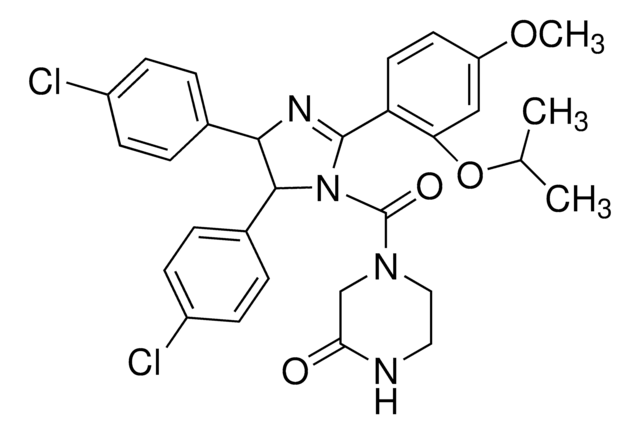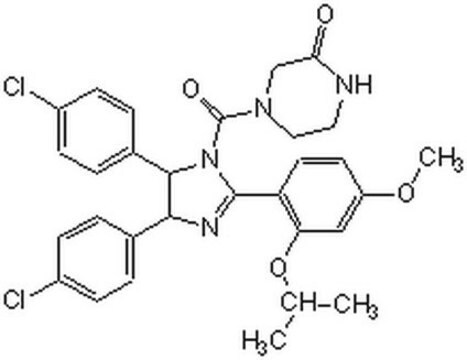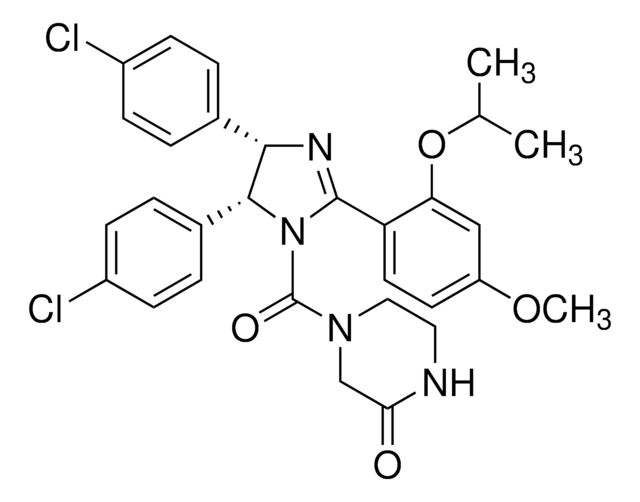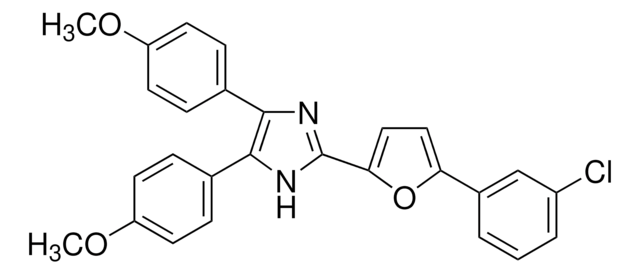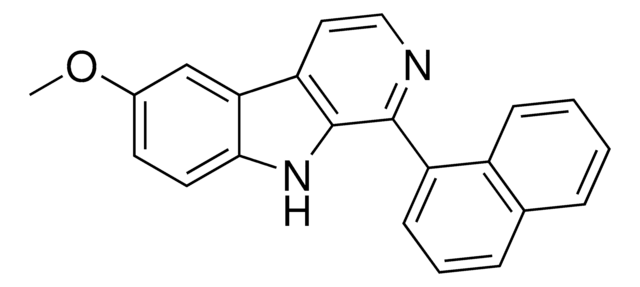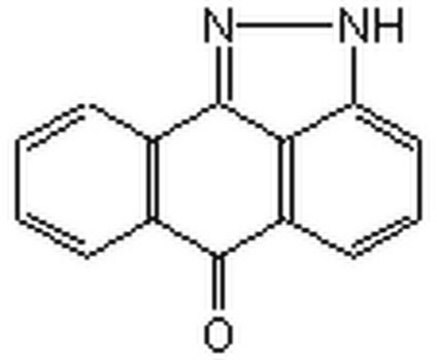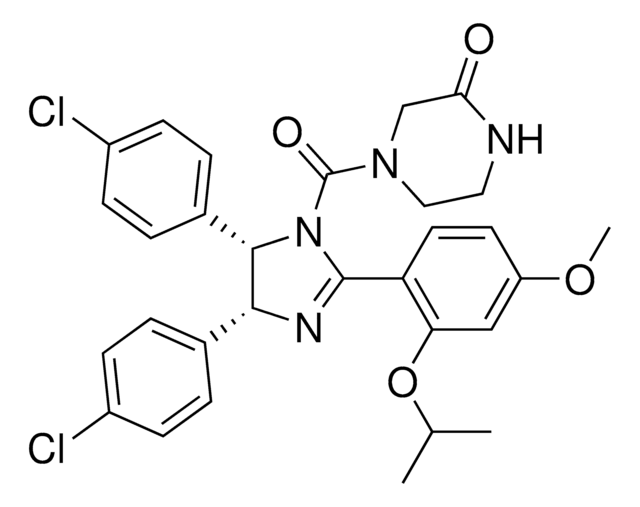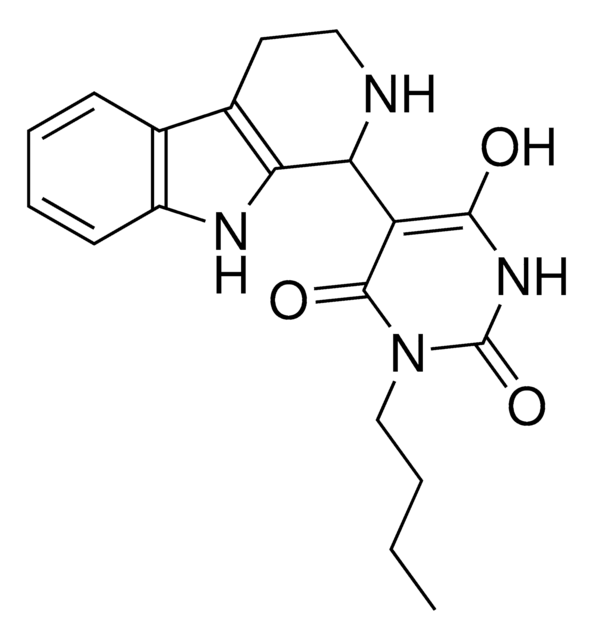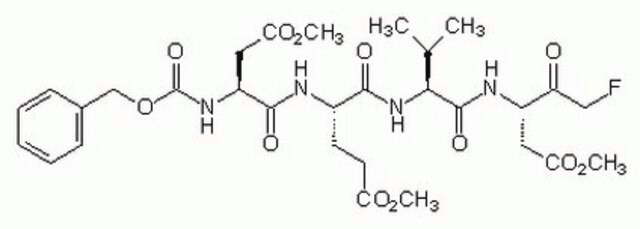444143
MDM2 Antagonist, Nutlin-3, Racemic
The MDM2 Antagonist, Nutlin-3, Racemic, also referenced under CAS 548472-68-0, controls the biological activity of MDM2. This small molecule/inhibitor is primarily used for Cancer applications.
Synonyme(s) :
MDM2 Antagonist, Nutlin-3, Racemic, MDM2 Inhibitor IV
About This Item
Produits recommandés
Niveau de qualité
Essai
≥98% (TLC and HPLC)
Forme
solid
Fabricant/nom de marque
Calbiochem®
Conditions de stockage
OK to freeze
protect from light
Solubilité
DMSO: 25 mg/mL
ethanol: 25 mg/mL
Conditions d'expédition
wet ice
Température de stockage
−20°C
Chaîne SMILES
Clc1ccc(cc1)C2N(C(=NC2c5ccc(cc5)Cl)c4c(cc(cc4)OC)OC(C)C)C(=O)N3CCNC(=O)C3
InChI
1S/C30H30Cl2N4O4/c1-18(2)40-25-16-23(39-3)12-13-24(25)29-34-27(19-4-8-21(31)9-5-19)28(20-6-10-22(32)11-7-20)36(29)30(38)35-15-14-33-26(37)17-35/h4-13,16,18,27-28H,14-15,17H2,1-3H3,(H,33,37)
Clé InChI
BDUHCSBCVGXTJM-UHFFFAOYSA-N
Description générale
Actions biochimiques/physiologiques
MDM2
Conditionnement
Avertissement
Reconstitution
Autres remarques
Vassilev, L.T., et al. 2004. Science303, 844.
Informations légales
Code de la classe de stockage
11 - Combustible Solids
Classe de danger pour l'eau (WGK)
WGK 3
Point d'éclair (°F)
Not applicable
Point d'éclair (°C)
Not applicable
Certificats d'analyse (COA)
Recherchez un Certificats d'analyse (COA) en saisissant le numéro de lot du produit. Les numéros de lot figurent sur l'étiquette du produit après les mots "Lot" ou "Batch".
Déjà en possession de ce produit ?
Retrouvez la documentation relative aux produits que vous avez récemment achetés dans la Bibliothèque de documents.
Notre équipe de scientifiques dispose d'une expérience dans tous les secteurs de la recherche, notamment en sciences de la vie, science des matériaux, synthèse chimique, chromatographie, analyse et dans de nombreux autres domaines..
Contacter notre Service technique